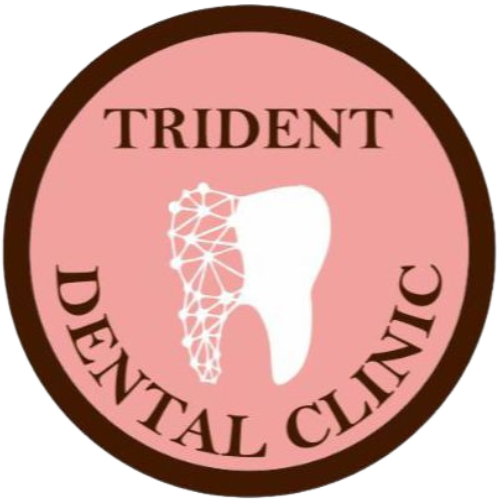Types of Dental Implants and Which One is Best for You?

When considering dental implants, it’s essential to understand the different types available and determine which one suits your specific needs. Dental implants have become the gold standard for replacing missing teeth due to their durability, functionality, and natural appearance. This comprehensive guide will walk you through the various types of dental implants and help you choose the best option.
What Are Dental Implants?
Dental implants are titanium posts surgically inserted into the jawbone, acting as artificial tooth roots. They provide a stable foundation for replacement teeth like crowns, bridges, or dentures. Implants fuse with the bone over time, ensuring a secure and long-lasting solution for missing teeth.
Types of Dental Implants
1. Endosteal Implants
Endosteal implants are the most common type of dental implants. They are surgically placed into the jawbone and are shaped like small screws, cylinders, or blades.
- Pros: Highly stable and durable.
- Ideal For: Patients with sufficient jawbone density.
- Process: After placement, it requires several months for the implant to integrate with the bone before the crown or prosthetic is attached.
2. Subperiosteal Implants
Subperiosteal implants are placed under the gum but above the jawbone. This type is used when the patient does not have enough healthy jawbone for traditional implants and cannot undergo bone grafting.
- Pros: Minimally invasive placement.
- Ideal For: Patients with insufficient jawbone density.
- Process: The implant is custom-made to fit the jawbone and is secured with a framework under the gums.
3. Zygomatic Implants
Zygomatic implants are the least common type and are used for patients with severe bone loss in the upper jaw. These implants anchor into the cheekbone (zygomatic bone) rather than the jawbone.
- Pros: Eliminates the need for bone grafting.
- Ideal For: Patients with significant bone atrophy in the upper jaw.
- Process: Requires specialized surgical expertise due to its complexity.
Specialized Types of Implants
Mini Dental Implants (MDIs)
Mini dental implants are smaller in diameter than traditional implants and are often used to stabilize dentures. They are less invasive and require a shorter healing time.
- Pros: Cost-effective, minimally invasive.
- Ideal For: Patients seeking a quicker solution for stabilizing dentures.
- Process: Placement usually completed in one session.
All-on-4 Implants
The All-on-4 technique involves placing four implants in the jaw to support a full arch of teeth. This method is a popular choice for patients who need to replace all teeth in the upper or lower jaw.
- Pros: Fewer implants needed, faster results.
- Ideal For: Patients seeking full-arch restoration.
- Process: Prosthetic teeth can often be attached the same day.
Factors to Consider When Choosing Dental Implants
1. Bone Health
The condition of your jawbone is a critical factor. Patients with insufficient bone density may require grafting or alternative implants like subperiosteal or zygomatic implants.
2. Budget
While dental implants are an investment, costs can vary significantly based on the type and number of implants. Discuss your budget with your dentist to find the best solution.
3. Long-Term Goals
Some implants are better suited for long-term durability, while others provide a quicker solution. Ensure your choice aligns with your dental and aesthetic goals.
4. Health Conditions
Certain health conditions, such as diabetes or gum disease, can affect the success of dental implants. Consult with your dentist to determine the most suitable option.
Which Dental Implant Is Best for You?
The best dental implant depends on your individual needs, including your oral health, jawbone condition, and personal preferences. Here’s a quick summary:
- Endosteal Implants: Best for patients with healthy jawbones seeking a durable and permanent solution.
- Subperiosteal Implants: Ideal for those with inadequate jawbone who cannot undergo bone grafting.
- Zygomatic Implants: Perfect for patients with severe bone loss in the upper jaw.
- Mini Dental Implants: Great for stabilizing dentures quickly and affordably.
- All-on-4 Implants: Optimal for patients requiring a full arch replacement.
Benefits of Dental Implants
- Natural Appearance: Mimics the look and feel of natural teeth.
- Improved Oral Health: Preserves jawbone density and prevents bone loss.
- Durability: With proper care, implants can last a lifetime.
- Enhanced Confidence: Restores your smile and boosts self-esteem.
How to Maintain Your Dental Implants
Proper care is essential to ensure the longevity of your implants:
- Maintain Oral Hygiene: Brush and floss regularly to prevent gum disease.
- Visit Your Dentist: Regular check-ups are crucial for monitoring implant health.
- Avoid Hard Foods: Minimize pressure on the implants by avoiding overly hard or sticky foods.
- Quit Smoking: Smoking can hinder healing and compromise implant success.
Dental implants offer a life-changing solution for missing teeth. By understanding the types and consulting with a dental professional, you can make an informed decision to restore your smile and improve your quality of life. Looking for the dental Implants Treatment in Kharadi Visit Trident Dental Clinic. To Book An Appointment Contact us at this number – +919209588909

